14+ SAMPLE Project Assessment Plan
-
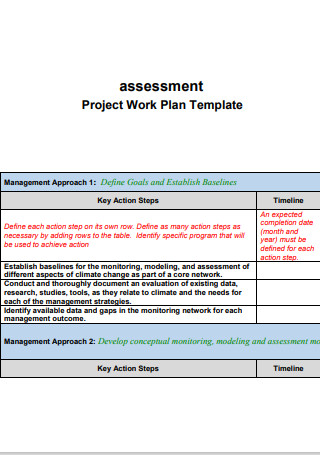
Project Assessment Work Plan
download now -
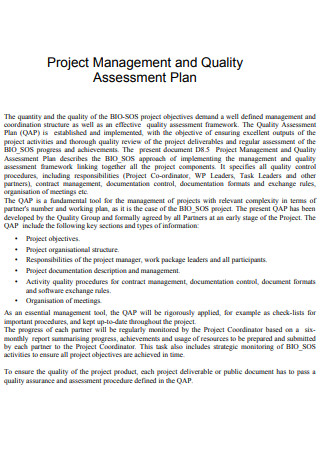
Project Quality Assessment Plan
download now -
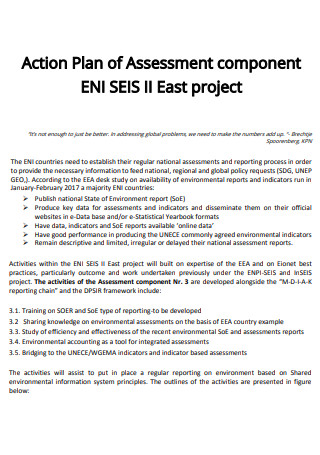
Project Assessment Action Plan
download now -
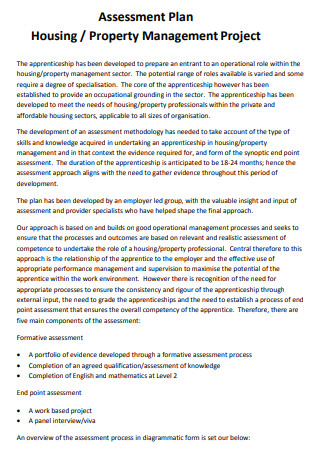
Project Management Assessment Plan
download now -
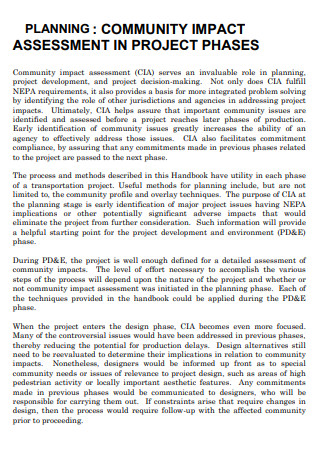
Community Project Assessment Plan
download now -
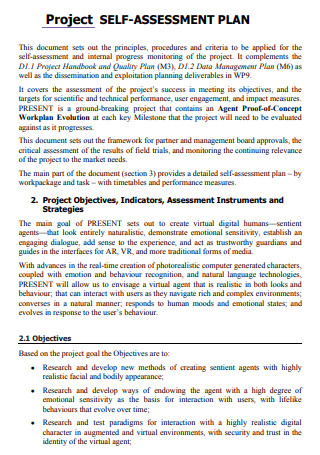
Project Self Assessment Plan
download now -
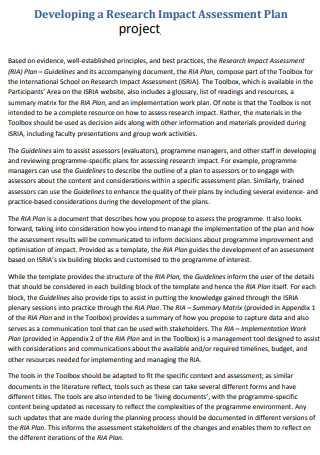
Project Impact Assessment Plan
download now -
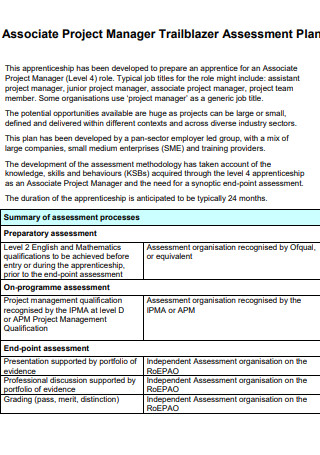
Project Manager Assessment Plan
download now -
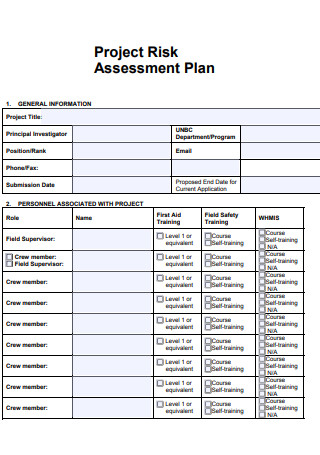
Project Risk Assessment Plan
download now -
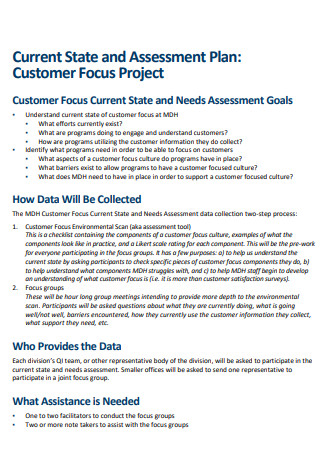
Customer Project Assessment Plan
download now -
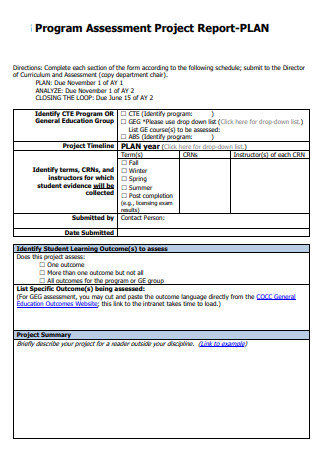
Project Assessment Report Plan
download now -
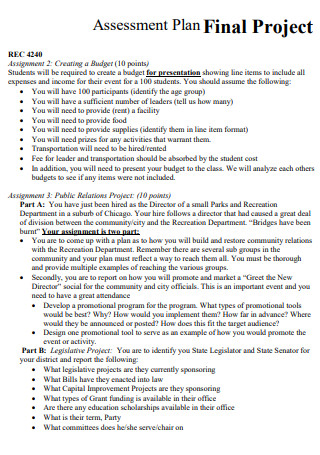
Final Project Assessment Plan
download now -
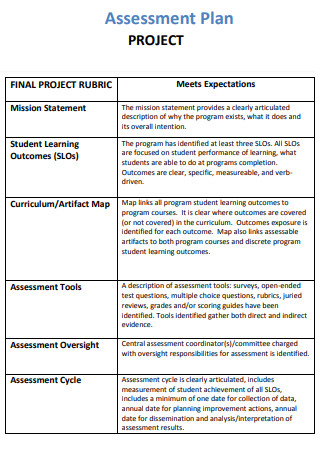
Sample Project Assessment Plan
download now -
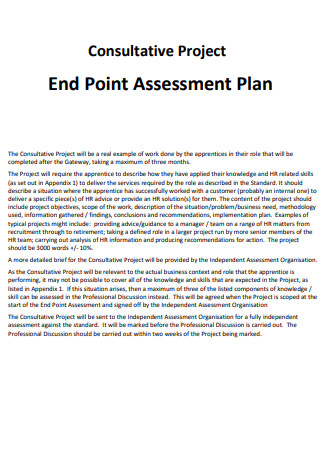
Consultative Project Assessment Plan
download now -
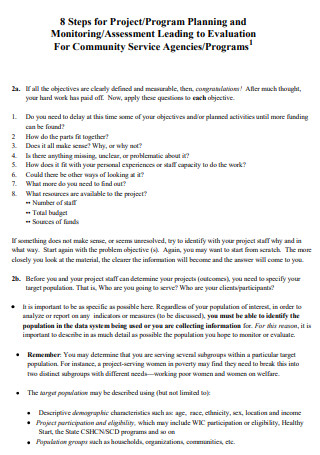
Steps for Project Assessment Plan
download now
FREE Project Assessment Plan s to Download
14+ SAMPLE Project Assessment Plan
What is a Project Assessment Plan?
Different Types of Project Assessment Plans
Benefits of a Project Assessment Plan
How to Write a Project Assessment Plan
FAQs
How to create a project assessment?
What are the major steps in the assessment process for student learning?
What are some examples of project assessment plans?
Why is a project assessment plan essential?
What is a Project Assessment Plan?
A project assessment plan is an all-inclusive and well-structured document that is extensively used for the successful execution of an assessment for a certain project in a company or organization. It is a strategic project planning and evaluation outline that highlights all crucial sections of a project assessment. This plan guides various individuals and professionals such as academic professionals, project managers, business executives, product developers, quality control specialists, marketing and communications managers, and many other professionals in other fields and industries to carry out their in-depth assessment of their projects.
According to statistics, undervaluing project management and assessment results in a 50% project failure rate as 34% of project managers don’t practice risk management and 42% don’t apply any formal assessment methodology in their projects. That’s why using systematic project assessment plans is a great way to help project managers and leaders with their staff perform their jobs efficiently and further enhance the quality of their projects. Thus, all kinds of academic project managers, business department managers, operational managers, product developers, entertainment program managers, system developers, digital content project supervisors, and other project managers should effectively create a compelling and well-detailed project assessment action plan.
Different Types of Project Assessment Plans
Project managers and quality control specialists use a wide array of methods, resources, tools, and strategies, as well as appropriate assessment plans for their projects. What are the different types of project assessment plans that are commonly used by project managers and evaluators?
1. Project Assessment Work Plan
A project assessment work plan is a structured action plan to assess the project work. It provides key management approaches, major action steps, and a designated timeline for each step. Write in the major action steps that you will set baselines for the careful monitoring, modeling, and evaluation of various aspects of your project work plan. Point out in this document that you will record a thorough assessment of existing data, research, studies, tools, and needs for the management of the project. Define the expected completion date for each major step.
2. Project Quality Assessment Plan
Develop a structured project management and quality assessment plan as you include the main objectives and organizational structure of the project, responsibilities of the project manager and other team members, description of the project documentation and management, explanation of the project activity procedures for contract management and documentation control, and meeting organization. As a critical project management tool, it is important to build and implement this plan to ensure excellent outputs of the project activities and in-depth project quality review of the deliverables, and continuous assessment of the progress and achievements of the project.
3. Community Project Assessment Plan
Are you currently working on the project planning and evaluation for the assessment of your community? Use a community project assessment plan and community project proposal for the organized planning, development, and decision-making of your community project. It identifies the role of jurisdictions and agencies in resolving project impacts and it assures those crucial community problems are defined and assessed prior to the concluding stages of the project production. This project planning and assessment tool also facilitate commitment compliance by ensuring that any commitments created in previous stages connected to the project are transferred to the next stage.
4. Project Self-Assessment Plan
Make a project self-assessment plan to establish the criteria, principles, and procedures to be integrated for the self-assessment and progress monitoring of the project. It deals with the assessment of the project’s development and success in fulfilling its objectives, the goals for scientific and technical performance and impact measures, and user engagement. This plan also uses an annual self-evaluation and creates the framework for partner and project management board approvals, the in-depth comprehensive assessment of the results of field trials, as well as the tracking of the project’s continuing significance to the market needs.
5. Project Risk Assessment Plan
Prepare a simple project risk management plan and assessment plan for your project to help your project management team and project quality control specialists to assess and mitigate the possible risks and other problems that may arise in your project. This is very important to maintain the safety of everyone involved in the project. Include the general information about the project such as the project title, principal investigator, position/rank, phone/fax number, submission date, department/program name, email address, and proposed end date for the current application. Also, add basic details of the personnel associated with the project which includes the field supervisor and other crew members as you write their names, the level of their first aid training, and the level of their field safety training.
Benefits of a Project Assessment Plan
A 2020 survey report showed that only 35% of project managers were “somewhat or very satisfied” with their existing project management systems and only 61% of them utilize an efficient project management methodology for each project. By writing an effective project assessment plan, project managers and evaluators can see the specific concerns and needs they must address to allow project success.
How to Write a Project Assessment Plan
Project assessments are fundamental in every business, company, and organization to help them in deciphering what is working and what needs improvement. If you are having a difficult time crafting a well-designed project assessment plan, familiarize yourself with the essential steps that you need to do to write an exceptional assessment plan for your project.
Step 1: Identify the Needs and Issues
Define the needs and issues that you see on the project that will be assessed. Also, determine the needs of your team members as they work in reaching the main goals and objectives of your project. See if there exist some issues that may occur while working on the development and management of the project.
Step 2: Write the Mission and Vision Statement
Tell what the project assessment is all about and its approach when it comes to attaining the major goals and objectives. The mission and vision statement should have a clearly articulated description of why the project exists, what it does, and its key intention, as well as the clear, specific, and measurable outcomes your team wants to fulfill in the near future for project success.
Step 3: Describe the Assessment Tools and Assessment Team
The next step is to include a description of the assessment tools needed and the basic information of the project assessment team or the project assessment coordinator/committee in charge of the roles and responsibilities for the assessment work. Specify the assessment tools such as multiple choice questions, open-ended test questions, rubrics, and community surveys. Indicate the full names, major roles, and core skills of the coordinator and members of the project assessment team.
Step 4: Set the Assessment Cycle
Establish an assessment cycle for your project. Consider different types of assessments that can be used based on the time period or phase of the project you are currently working such as preliminary evaluation or needs assessment, weekly assessment, monthly assessment, quarterly evaluations, annual evaluations, and final impact assessment. Include a date for the assessment planning and for the analysis/interpretation of assessment results.
Step 5: Proofread and Finalize the Plan
Review your overall project assessment plan and make sure that you fully incorporate all the critical points in your assessment plan outline. Ask your team members for their honest feedback evaluation and opinions on the content of the assessment plan. If you notice that you overlook some sections that need more essential information, try your best to proofread, edit and revise the document as soon as possible.
FAQs
When you create a project assessment, you need to craft a brief and compelling executive summary of your assessment report and an engaging project introduction. Define the core purpose, goals, and objectives of the assessment. Explain the methods, strategies, and tools you will use for the assessment. Then, discuss whether the project has a sufficient number of qualified and experienced teams and whether they are doing their roles and responsibilities to the required performance level or not. Check the effectiveness, efficiency, relevance, impact, and sustainability of the project being assessed. Showcase the strengths of the project and areas of improvement.
The major steps in the assessment process for student learning are identifying the learning outcomes, choosing proper assessment measures, analyzing learning outcomes, examining the results of the assessed learning outcomes, and adjusting or improving academic programs based on the results of the assessed learning outcomes.
Some examples of project assessment plans are customer project assessment plans, community project assessment plans, project risk assessment plans, project management assessment plans, final project assessment plans, nursing work project assessment plans, health care project assessment plans, project review and assessment plans, project qualitative assessment plans, and disaster risk project assessment plans.
A project assessment plan is essential because it aims to determine the significance, value, and level of accomplishment and development of major project goals, and objectives, as well as the effectiveness, efficiency, fairness, impact, reliability, sustainability, and validity of the project assessment.
How to create a project assessment?
What are the major steps in the assessment process for student learning?
What are some examples of project assessment plans?
Why is a project assessment plan essential?
In order to attain project success, project evaluators and quality control managers use a comprehensive project assessment plan to see how a particular project is performing day-to-day, to determine if the team is on track in fulfilling their target results, and to inspect various information sources or data collection methods such as project activity log or daily journal reports, questionnaires or surveys, and interviews or focus groups. Plus, we have included project assessment plan samples, project self-assessment plan examples, academic project assessment action plans, and other project assessment plan templates that you can access and customize for your ongoing and future project assessments.
